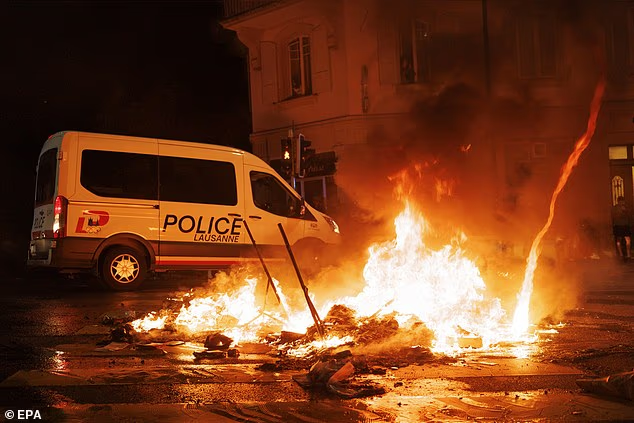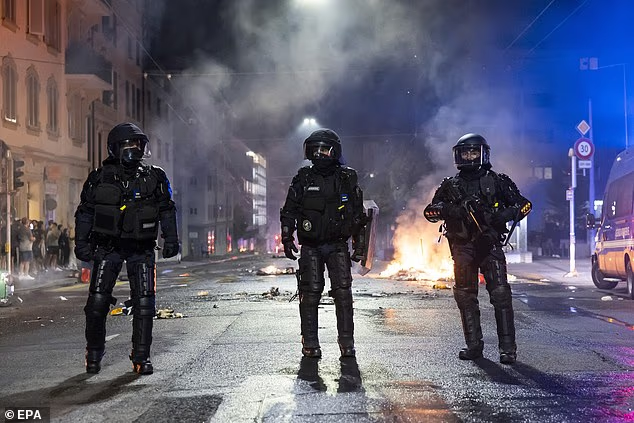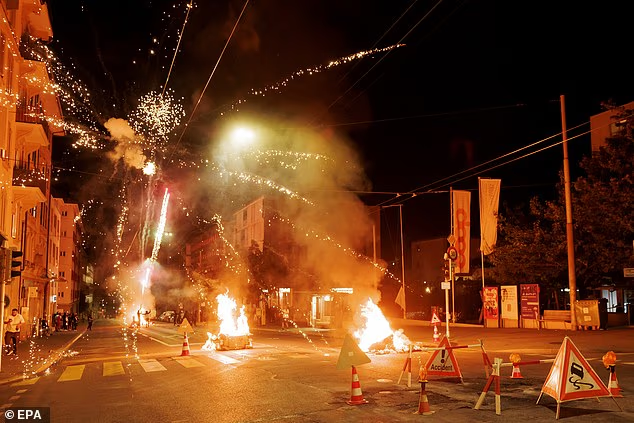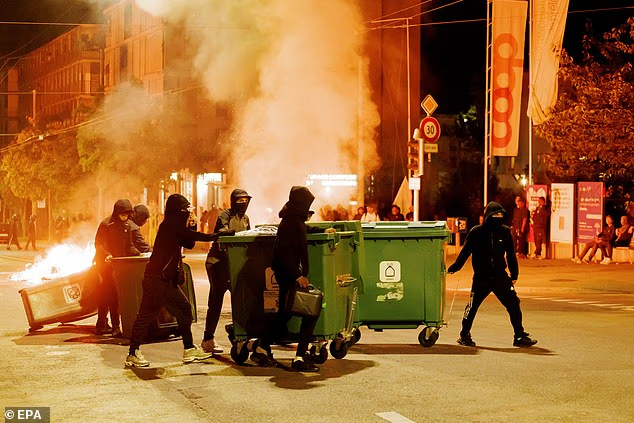Riots have gripped Lausanne after the death of a 17-year-old migrant background teenager during a police pursuit, reigniting debates over policing practices, systemic discrimination, and Switzerland’s broader immigration policies.
The unrest began Sunday after Marvin M, a Swiss resident of Eritrean descent, crashed his scooter while fleeing police. Authorities say he was riding a stolen vehicle and lost control while speeding through an 18mph zone; his family strongly disputes the theft claim, insisting he was innocent. Emergency services failed to resuscitate him.

What followed was two nights of violent clashes. Protesters—many masked—set containers ablaze, erected barricades, and attacked public transport, while riot police responded with tear gas and arrests. Lausanne officials condemned the violence, framing it as opportunistic chaos rather than legitimate outrage over Marvin’s death.
Yet the timing could hardly be worse for city police. Days earlier, prosecutors revealed that serving and former officers had shared racist, sexist, and discriminatory messages in private WhatsApp groups. Four officers have already been suspended, with more disciplinary action expected. Lausanne’s Socialist mayor, Grégoire Junod, admitted the revelations show a “systemic problem” within local policing and called for “cultural change” to restore public trust.

This is not an isolated tragedy. Marvin is the third person to die during a Lausanne police intervention in under three months, and at least five of seven deaths since 2016 have involved men of African origin. Critics argue this pattern reflects deep racial bias within law enforcement, a claim amplified by the WhatsApp scandal.
At the same time, the unrest underscores a broader national tension: Switzerland’s struggle with immigration and integration. Once praised for humanitarian openness—welcoming more than 200,000 refugees in the last decade, many from Eritrea, Somalia, Syria, and Afghanistan—the country is now wrestling with visible fractures. While left-leaning officials stress discrimination as the core issue, right-wing voices blame failed immigration policies, pointing to unrest as evidence that Switzerland is following the path of France, Germany, and Britain.

The debate comes amid a looming population cap initiative spearheaded by the hard-right Swiss People’s Party (SVP), which seeks to limit Switzerland’s population to 10 million by 2050. If successful, it could sharply restrict naturalizations and residency permits for migrants. Supporters frame it as necessary for national stability; critics see it as xenophobic fear-mongering that risks further division.
With foreigners already accounting for more than one in four residents—one of the highest rates in Europe—the Lausanne unrest has become a symbolic flashpoint. It exposes not only strained relations between police and marginalized communities but also Switzerland’s growing unease with its own multicultural identity.



